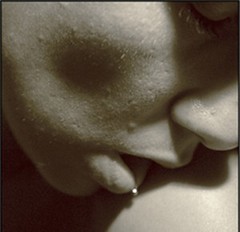 Hooking up is getting lots of video and academic attention. Plus, it’s Spring — and Spring Break — so it seems timely to re-post the following (with permission from the Ms. Magazine Blog).
Hooking up is getting lots of video and academic attention. Plus, it’s Spring — and Spring Break — so it seems timely to re-post the following (with permission from the Ms. Magazine Blog).
The days are finally longer. Birds are chirping and green leaves are starting to bud. This can only mean one thing. Spring Break! And with Spring Break comes hook ups.
Some folks are freaking out about this “new phenomenon” of hooking up, but I’d argue it’s hardly new — check the lyrics from those 1975 disco heroes, KC and the Sunshine Band:
baby, babe let’s get together
honey, honey me and you,
and do the things, oh, do the things
that we like to do.oh, do a little dance, make a little love …
get down tonight…
Translation? Hey, shorty, let’s hook up.
The 1960s had Free Love. The 1980s was about the cazh (as in casual sex). Today we can knock boots, hit it and quit it, find an FWB or a ONS. Call it what you want, it’s still consensual sex outside of a committed relationship. And while the language may change, the moves remain the same.
What is new on the sexual landscape are debates about whether casual sex is all about fun and free will, or if hooking up is linked to sexual assault and women’s objectification.
The fact is that young adults ages 18 to 24 who have casual sex do not appear to be at higher risk for psychological fall-out compared to their partnered peers. In so many words, Score! says Jaclyn Friedman of Yes Means Yes. Research from the University of Minnesota “reveals the truth that neither Hollywood nor the Religious Right want you to know: Casual sex won’t damage you emotionally. Not even if you’re a girl!”
But Occidental College professors Lisa Wade and Caroline Heldman might disagree. Their forthcoming article, “Friends with Benefits, Without the Friendship Maybe?” points out that college hook-up culture often involves drinking — a known factor in sexual assault. Young women and men alike say the sex is often unpleasant and meaningful connection is elusive. Many students offer harrowing descriptions of assault, sexually transmitted infections, emotional trauma and gendered antagonism. Yet hooking up — with its risks, missteps, and possible mistakes — is still a chance to explore sexual boundaries.
Determined to get to the hot-and-bothered heart of the matter, Heather Corinna from Scarleteen.com is launching a new study on multigenerational experiences with casual sex. Corinna hopes to find “a more diverse, realistic and non-prescriptive picture of people’s sex lives and ideas about sex.”
Yet, according to Salon.com’s Kate Harding, “the problem that needs solving isn’t hook-up culture, but the intense pressure on girls and women to focus on getting and keeping a guy, rather than on getting and keeping whatever they want.” Documentary filmmaker Therese Shechter of The American Virgin gives a nod to this point:
What’s actually bad for women and girls is treating us like victims who need protecting [and] ignoring that our sexual experiences, good or lousy, can contribute to our growth and development as human beings.
“I’m all for sexual freedom as long as you’re safe,” says Jacob Levy, an 18-year-old student at California State University, Long Beach. “[But] there should be a warning label on hooking up,” adds 20-something Stefaney Gonzalez. “Something like WARNING: proceed with caution.”
As Nancy Schwartzman documents in her gripping film, The Line, there is potential for both pleasure and peril with sex, casual or otherwise. Hooking up doesn’t happen in a vacuum, but against the backdrop of crime rates that show one in six women (and one in 33 men) statistically likely to face sexual assault in their lifetime.
Hooking up also has a gendered hue when girls are taught that being sexy is about performing instead of about self-pleasure and expressing what feels good. It’s what philosophers call “illocutionary silencing” — when girls and young women fail to say what they want. As Heldman wrote in Ms. magazine, self-objectification has serious impacts on girls’ political efficacy and sexual pleasure. Getting off becomes tied to seeing oneself through the eyes of someone else, or through the lens of an imaginary porn camera.
The issue isn’t imaginary porn cameras, though; there are lots of items that clutter the sexual imagination. But here’s a thought, and it’s not a new one: Reducing sexual harms like assault, coercion, and slut shaming means maximizing sexual pleasure. Let’s kick forced power disparities and nonconsensual objectification out of our everyday lives in the bed and beyond. That’s when the girls will really go wild. On our own terms.
Photo courtesy of: http://www.flickr.com/photos/gaelx/ / CC BY-SA 2.0